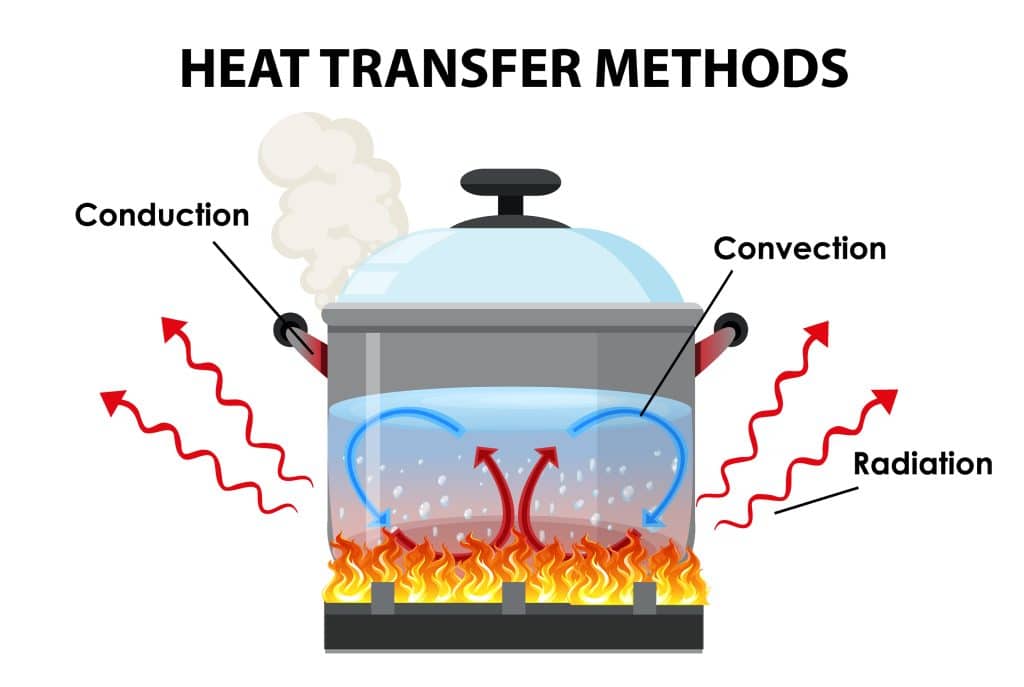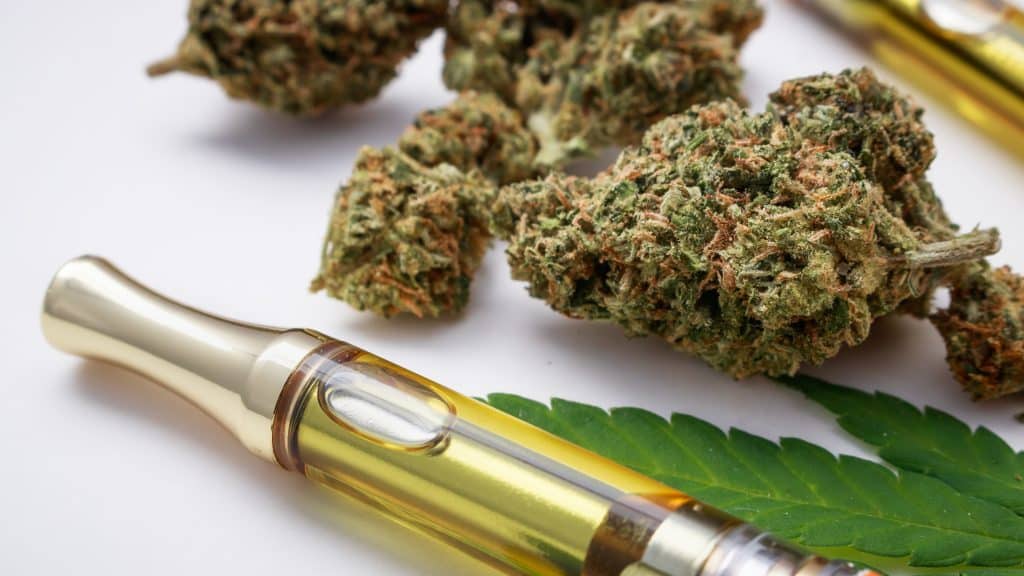It took a bit of getting used in the beginning, but vaping has exploded in recent years and as far as we can tell, these products are here to stay and only improving in terms of variety and functionality. Even so, they still remain a bit of a mystery to many consumers who may not understand exactly how they work or what vape products have to offer them. So, here is everything you need to know about the pros and cons of vaping cannabis.
To stay current on everything important happening in the industry, as well as gain access to deals on cannabis flowers, vapes, edibles, and much more (various cannabinoids to choose from), make sure to subscribe to The Cannadelics Weekly Newsletter. Enjoy responsibly!
What is Vaping?
Vaping has become incredibly popular over the last couple decades and as such, most people are relatively familiar with the concept. In case you are not, vaping is the use of an electronic device to heat up a liquid or raw plant material until it produces a vapor that can be inhaled.
Vaping can be done with nicotine vape juice, cannabis extracts, flower, and tobacco. When vaping actual weed or tobacco, the vaporizer will heat up the plant matter just enough to make that vapor by using heating methods known as convection and conduction. Since it does not actually burn or combust the product, this makes for a much cleaner and safer experience than smoking.
Although interest in vaping technology has really blossomed lately, the idea behind it is much older than most people realize. One of first patents for an electronic device to vaporize plant compounds was filed in 1927 by Joseph Robinson. The device was never commercialized, as a matter of fact, no one knows if Robinson ever manufactured a prototype. But the idea was there.
Many more vape designs emerged throughout the 20th century. A few of the more popular ones include the “Shake and Vape”, a bulbous glass pipe meant for vaping weed that was invented by Cherokee medicine man Eagle Bill, and the infamous Volcano Vaporize released in 2000 by Storz and Bickel, which became really popular among millennial stoners. Everyone at least knew someone with a volcano back in the day, and the still remain one of the iconic vape devices on the market.
A few years later, in 2002, Chinese entrepreneur Hon Lik invented the e-cigarette. Met with much skepticism in the beginning, it’s now a stable item in U.S. smoke shops, head shops, and dispensaries. Last year, the cannabis vape cart and disposables sector generated over $2 billion, and it has only continued to grow throughout 2022.
Conduction vs Convection
Above I mentioned convection and conduction, which are two possible heating methods used in vapes. It’s relatively simple, but I wanted to go over each process in a bit more detail. In convection heating, the substance makes direct contact with the heat source. Think of it like boiling water – you apply heat to the pot which then boils the water from the bottom up. In a standard vape, a ceramic or metal coil is the source that heats up the chamber, and then the chamber heats and vaporizes the product.

Convection vapes are the opposite, they work by indirectly heating flower or concentrate. Similar to an oven, the air inside the chamber is heated and then a vapor is produced by the product. Convection vapes heat the product as you draw, and because the heating element is separate from the bowl or chamber, the heat is applied more evenly and there is less risk of burning the product.
Although convection heating sounds like the superior of the two, most vaporizers on the market use conduction heating. It does often take longer to heat the product with convection vapes, so it’ll be slower and possibly less convenient and discreet. But that seems to be the only drawback to using convection vapes.
Is Vaping Actually Safer Than Smoking?
Vaping is touted as the safer alternative to smoking, but how safe is it really? Naturally, a great deal of anecdotal evidence suggests that it is considerably easier on the lungs. There is certainly a lack of controlled, randomized testing comparing the effects of smoking weed products versus vaping them (or vaping versus smoking in general); but there can be many reasons for that, ranging from the fact that cannabis is still federally illegal, to the knowledge we have about big tobacco and how much money they give to the government through lobbying and political donations.
That said, despite vaping likely being safer than smoking, it’s not without risks of its own. Let’s face it, ideally, you should not be inhaling anything into your lungs aside from oxygen. But we do, so our goal is to do it as safely as possible. Some studies, like this one from the University of Michigan, actually argue that vaping is even more dangerous than smoking, but it’s hard to see how that could be true.
Regardless, there are some things to consider when vaping that could possibly make it even less safe, such as the addition of vitamin E acetate or other fillers in unregulated vape products. Also, the way you take hits could make a difference as well. I’m a heavy weed smoker and I’ve noticed that sometimes when I hit my vape pens, I draw way harder than I should (as if I’m hitting a blunt or joint) which leads to way more coughing than I experience when smoking – but that’s more of a user-error type of situation.
When it comes to tobacco, the majority of studies found that e-cigs are safer but not free of risk. “E-cigarettes heat nicotine (extracted from tobacco), flavorings and other chemicals to create an aerosol that you inhale. Regular tobacco cigarettes contain 7,000 chemicals, many of which are toxic,” says Michael Joseph Blaha, M.D., M.P.H. “While we don’t know exactly what chemicals are in e-cigarettes,” there’s almost no doubt that vaping exposes you to fewer toxic chemicals than smoking traditional cigarettes.”
The Pros and Cons of Vaping Cannabis

Let’s first take a look at the negatives and positives when it comes to vaping real cannabis flower using a dry herb vaporizer.
PROS
- You get the benefits of vaping with the classic feel and flavor of using real flower.
- Because of the controlled low temperatures, more cannabinoids and terpenes are activated before they are burned off, leading to much more potent flavors and better terp profiles.
- There is less smell to worry about. Many vape devices are discreet and portable, and you don’t have to worry about that super pungent aroma of weed smoke.
CONS
- One of the biggest issues people have with switching to a dry herb vape is the initial cost of doing it. A good quality device could be upwards of a couple hundred dollars.
- Weaker effects compared to smoking (although this depends on who you ask. I personally prefer the effects of smoking, but some small-scale studies such as this one conducted by Johns Hopkins Bayview Medical Center’s behavioral pharmacology research unit in 2018, claim that vaping, in fact, produces a stronger high).
Next, let’s check out some of the pros and cons of using vape carts and disposables.
PROS
- Convenience and discretion are probably the biggest perks to the introduction of carts and disposables. Now, we can get high almost anywhere and anytime. Carts are my go-to for getting stoned when I’m out and about in Indiana (my current state of residence), where cannabis is still illegal and it’s much sketchier to use in public.
- Carts and disposables are very cost-effective. In several of the more established markets (like California), even decent quality live resin carts and dispos are selling for around $20 per gram.
- Variety, variety, and more variety. With carts and disposable vapes, you have so many different strains and flavors to choose from.
CONS
- Some vape products contain heavy metals and other dangerous additives and containments. And not just in the extract, but the metal components in the carts themselves have been called into question lately as well.
- The high is said to be less intense than with smoking weed or even using dry herb vapes, but again, it depends on what you’re vaping and many other situational factors.
- Not a health problem but an environmental one, and that’s the sheer amount of waste produced by these products. Because both carts and disposables are meant to be thrown out after you finish using them, this has led to an increase in vape litter on our streets.
Final Thoughts
Vaping is one of the fastest-growing cannabis industry trends; not only because it’s believed to be safer than smoking, but because it offers a level of discretion and variety you just can’t get with flowers. That’s not to say that vapes are the perfect alternative to smoking, because that’s not the case for everyone, but they can certainly be a great addition to your regular inventory of pot products.
Hello readers! We appreciate you joining us at Cannadelics.com, a top choice news platform for independent coverage of the growing cannabis and psychedelics landscapes of today. Come by the site whenever possible for updates on current and world-changing events, and head over to the Cannadelics Weekly Newsletter, so you’re always up on what’s going down.
The post The Pros and Cons of Vaping Cannabis appeared first on Cannadelics.
Via https://cannadelics.com/2022/10/27/the-pros-and-cons-of-vaping-cannabis/
source https://rosalinaklerkx.weebly.com/blog/the-pros-and-cons-of-vaping-cannabis
No comments:
Post a Comment